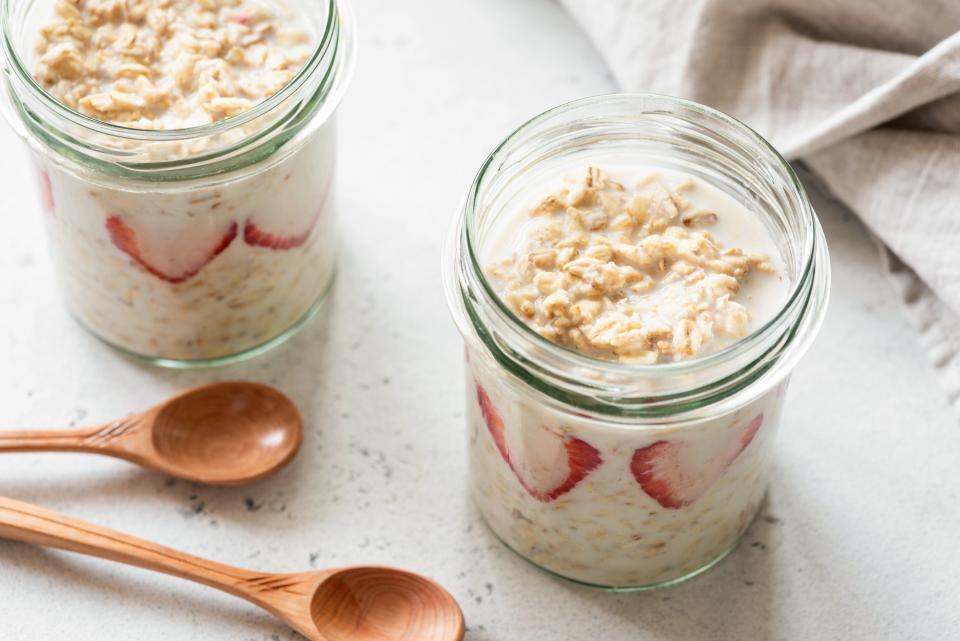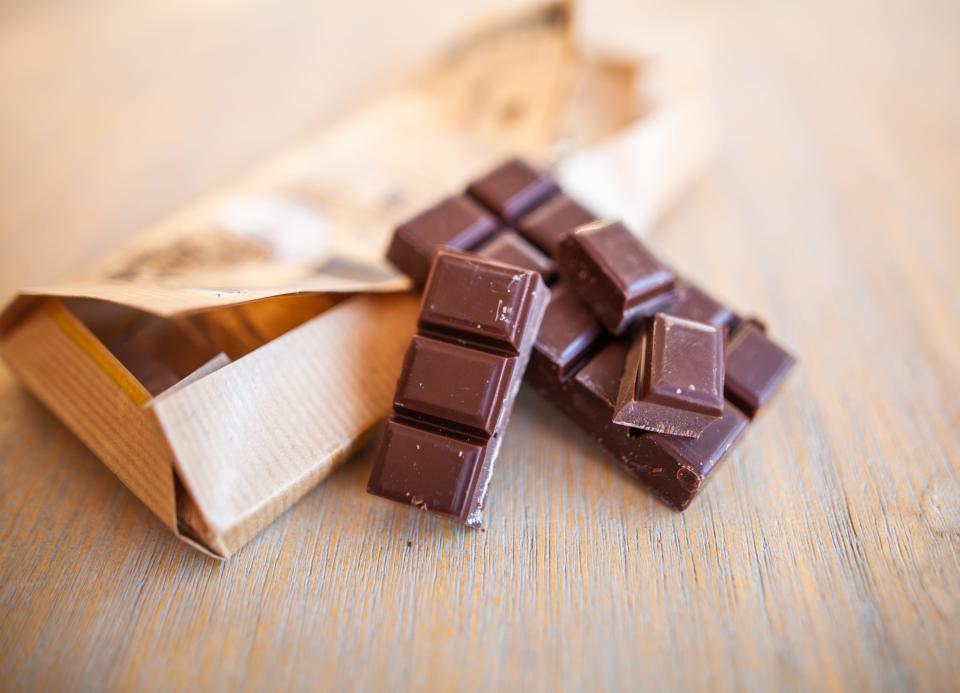A dietitian wrote a book on how to make avoiding ultra-processed foods easy. Here's what she eats in a day.
A diet high in ultra-processed foods is linked to poor health.
But you don't need to cut them out to be healthy, dietitian Nichola Ludlam-Raine said.
She shared an average day of eating to show how to strike a healthy balance.
Registered dietitian Nichola Ludlam-Raine is on a mission to help people understand how to limit ultra-processed foods (UPF) while enjoying their lives.
While the term UPF has become more prominent in recent years as research has grown about their potential harms, Ludlam-Raine says the public is confused about how to shop and eat to avoid them.
In her new book, "How Not to Eat Ultra-Processed," published in the UK and Germany on July 18, Ludlam-Raine aims to arm people with the knowledge they need to decipher food labels and make informed decisions.
It's not a case of never eating anything ultra-processed — generally considered to be a food containing ingredients you wouldn't have in your own kitchen — but minimizing your intake and choosing predominantly whole foods.
There are many reasons UPFs are considered harmful: they tend to be hyper-palatable thus easy to over-eat, and were linked to a higher risk of 32 health problems, including type 2 diabetes, depression, and cardiovascular disease, in a recent study.
As Ludlam-Raine explained to Business Insider, when choosing what to eat, it's not necessarily about what the foods are, but what versions you choose. One brand of cream cheese might be a UPF, but another won't, for example.
To help show how you can eat a predominantly non-UPF diet, Ludlam-Raine shared how she eats on an average day with BI.
Oatmeal is a healthy breakfast
Ludlam-Raine has oats for breakfast but chooses whole rolled oats rather than instant, which can be ultra-processed.
She cooks her oatmeal then tops it with frozen berries, nuts, and seeds, so she's eating a diverse range of plants, Ludlam-Raine said. The aim is to add goodness into your meals when trying to eat more healthily, rather than cutting out foods, she said.
When it comes to the milk she uses to cook her oats, the least processed choice is usually dairy. However, Ludlam-Raine's son is allergic to dairy, so she doesn't use it.
"These foods have got a real place in people's lives who literally cannot consume certain things," she said, referring to UPFs. "So if my son didn't have UPF oat milk, he wouldn't be meeting his calcium and his iodine goals."
This is an example of a small amount of UPF in an otherwise whole-food meal being nothing to worry about, Ludlam-Raine said.
She often has some Greek yogurt on the side for a protein boost too, which is a better choice than flavored yogurts which tend to be ultra-processed.

Fruit, nuts, and cheese are good morning snacks
Ludlam-Raine said she drinks tea and coffee in the morning and often snacks on dried fruit with nuts, or fresh fruit such as an apple with a piece of cheese.
Depending on the product, cheese tends to be processed not ultra-processed, she said.
Sourdough toast is a versatile lunch base
For lunch, Ludlam-Raine uses sourdough bread as a base, but makes sure to choose one that is genuine sourdough as opposed to "sourfaux." Sourdough bread should only feature flour, water, and salt on its ingredients list.
"All you have to do is look at the label on bread and if there's no emulsifiers or preservatives, if it's based on whole foods, then that's non-UPF," Ludlam-Raine said.
She toasts her sourdough and tops it with smashed avocado or a non-UPF hummus.
"The majority of hummus out there is non-UPF, but some is," Ludlam-Raine said. "However, the amount of additives, again that's on the spectrum. I was mortified when I looked at some of these ingredient lists."
She said some brands of hummus may only include a small amount of one preservative, whereas others have many additives.
Other days, Ludlam-Raine has eggs on toast with a side salad, she said.
Look for snack bars that are non-UPF
When it comes to an afternoon snack, Ludlam-Raine's choice depends on whether she is out or at home.
She looks for the least processed option: A chocolate bar would likely be UPF, while chocolate-covered almonds might also be UPF but would be more nutritious. So she would choose a snack bar that features whole foods mixed together.
Ludlam-Raine, who is based in the UK, likes brands including Nakd and Deliciously Ella.

Spaghetti bolognese can be a non-UPF meal
An average dinner for Ludlam-Raine would be homemade Bolognese sauce made from lean ground beef, kidney beans, chopped tomatoes, and spices, served with spaghetti.
If you make your Bolognese using a pre-made pasta sauce, however, it may contain UPF.
"Although these meals could be 100% non-UPF, actually there's a decision to be made on the oat milk, the bread, the pasta sauce," Ludlam-Raine said.
Greek yogurt and dark chocolate for dessert
To satisfy her sweet tooth after dinner, Ludlam-Raine often eats Greek yogurt topped with a combination of dark chocolate, homemade granola, strawberries, or honey, she said.
"Sugar isn't UPF, but because it's non-UPF doesn't mean that you can have as much of it as you like," Ludlam-Raine said.
She encourages people to eat unprocessed foods freely while being mindful of the sugar and fat content.
Take potato chips, for example: You can get non-UPF potato chips, but that doesn't mean you shouldn't watch your portion size, Ludlam-Raine said.
This is why Ludlam-Raine thinks it's a mistake to consider only whether a food is a UPF when choosing what to eat, when there are many factors that determine how healthy something is.
Read the original article on Business Insider

